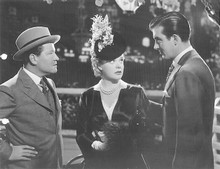 Loading... Please wait...
Loading... Please wait...New Products
Our Newsletter
Tin Pally Alley (1940) DVD
Product Description
Tin Pan Alley (1940)
Director:
Walter LangWriters:
Robert Ellis (screen play), Helen Logan (screen play)Stars:
Alice Faye, Betty Grable, Jack Oakie
Product Reviews
-
DVD

Posted by Unknown on May 3rd 2021
The wait for the DVD was a bit long. Happy with the DVD.
-
Faye & Grable together

Posted by Carl on Aug 11th 2020
It is a great movie for its time and to have two of the biggest and best female Stars in the same movie gracing the screen, just wonderful.
Jack Oakie and John Payne made allot of movies together and also with Alice Faye. They are all good movies and this one doesn't disappoint. I can easily see why HOLLYWOOD was at it best in the 30's & 40's. Good movies and good stars what a combination.
-
Fox Musical at it's Best

Posted by Unknown on Aug 5th 2016
A rare movie that Fox seems to have forgotten. Alice Faye and Betty Grable are very good together in their musical numbers...and it is great to see any movie in which the Nicholas Brothers appear.
Currency Converter
Choose a currency below to display product prices in the selected currency.
















